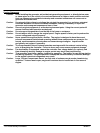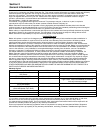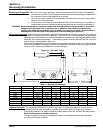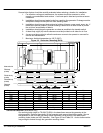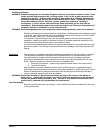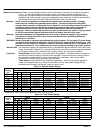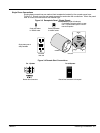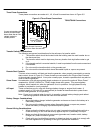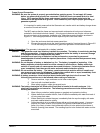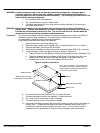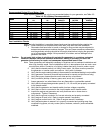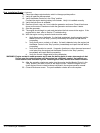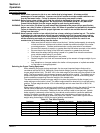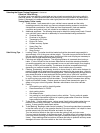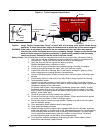
3-6 Receiving & Installation MN2417
Three Phase Connections
Three phase connections are made at L1, L2, L3 and N connections shown in Figure 3-5.
Figure 3-5 Three Phase Connections
For power to be applied to these
terminals, the Output Voltage
Selector Switch must be in the
120/208V, 120/240V or
277/480V positions.
Customer Connections
L1, L2, L3 and N
Earth Ground Connection
(to Driven Earth Ground Rod)
TS250/TS400 Connections
Transfer Switch Considerations
The following are general considerations for the safe use of a transfer switch:
1. The transfer switch should be located inside the building near the main breaker box or
the disconnect box.
2. The transfer switch must be kept away from any location that might allow water to get
on it.
3. If the transfer switch is mounted outside, it must be protected from the environment and
it’s elements.
4. Do not mount the transfer switch on the generator set.
5. Do not mount the transfer switch where flammable liquids or vapors are present.
Remote Start Contacts
This two−wire connection will start and stop the generator, when properly connected to a remote
start contact, shown in Figure 3-4. These contacts are connected to the “Engine Start Contacts”
of the automatic transfer switch. A two pole normally open, closed to operate switch may also be
used to start the generator.
Shore Power Use extension cord with appropriately sized conductors to connect the optional “Shore Power”
receptacle to 120VAC (240VAC for TS400) single phase utility power. This powers battery
chargers, block heaters etc. when the generator is not in operation. A single phase 20 amp
breaker is provided for circuit protection.
AC Input These connections are for units with float type battery charger or engine block heater. A
constant supply of 120 volts AC (or as specified) is needed at these terminals to power these
devices when generator is not operating.
Note: Power is not required when the unit is in operation. Internal battery charging and radiant
heat during operation eliminate the need for these devices.
Battery Charger Considerations
1. Mount the battery charger inside the generator enclosure as close to the battery as is
reasonably possible.
2. Do not mount the battery charger where flammable liquids or vapors are present.
When the battery is charging it produces explosive gasses.
General Wiring Considerations
1. When routing the interface wiring, do not route it up against anything that could cut or
chafe the wiring. do not route the wire up against any hot or potentially hot object.
2. Make sure that all the electrical components (generator set, transfer switch, battery
charger, etc.) share a common ground.
3. Check with your local building inspector to determine what you must do to comply with
the local regulations for grounding of this type of permanent installation.



